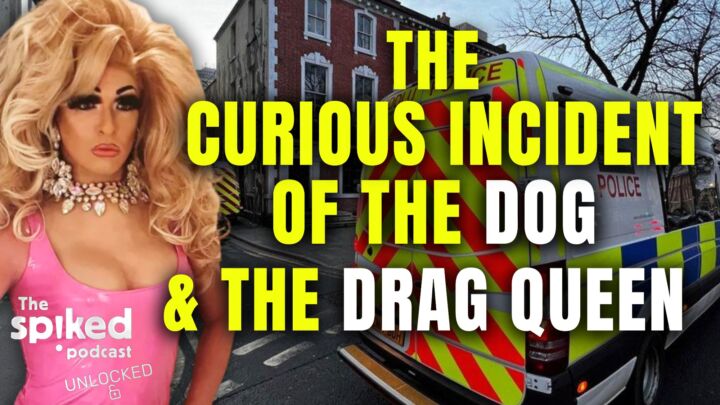That thing you’re feeling about Bowie — it isn’t grief

Want unlimited, ad-free access? Become a spiked supporter.
Is the grief for David Bowie real? As legions of Bowieologists and pop followers take to Twitter and elsewhere to express their shock and sorrow at his passing, that’s the question some are asking. Julie Burchill wrote a brilliantly scathing piece for the Spectator slamming the ‘sob signalling’ of Bowie fans and taking to task the talking-heads with ‘nothing to say’ yet who won’t shut up about their sadness over Bowie. Others, however, say all this grief is fine, good in fact. Dazed magazine attacks the ‘grief police’ and their ‘smug censure’ of teary-eyed Bowie freaks. The Guardian’s beauty columnist — what? — tells the ‘grief ombudsmen’ who ‘pass the feelings of others through rigorous quality control’ to ‘stop being dicks’.
So, who are the dicks — the weepers for Bowie or the weepers’ critics? My feeling is that there’s definitely a problem with the grievers. The main one being their misappropriation of that very word and emotion: ‘grief’. Because whatever they’re feeling for Bowie, it isn’t grief. I can perfectly understand why fans are crying over Bowie. He meant a great deal to a lot of people. Hell, I’m not the world’s biggest Bowie fan and even I got a bit choked when they played ‘Heroes’ during News at 10’s tribute to him. But your tears, your tribute-paying tweets, your re-playing of old Bowie albums, your real feelings of sadness at the passing of a pop hero — none of that is grief. Grief is something else entirely.
Grief is physical and mental pain. It’s oppression. It is, in the words of the OED, ‘hardship, suffering, injury’. To feel grief is to feel ‘pained, oppressed’. Are these Bowie fans suffering? Really suffering? No, they aren’t. They’re sad. They’re upset (‘to be troubled’), not in grief (‘to feel pain’). So when that beauty columnist claims that the post-Bowie ‘grief policing’ on Twitter and other social media is the equivalent of ‘walking into a grieving person’s house and saying “Buck up!”’, she is massively missing the point. Even worse, she’s appropriating the real pain, the oppression, felt by those who really are grieving for Bowie in order to make her own teary emotionalism seem more profound. Listen, Iman, Bowie’s widow, is in grief; you are not. And telling you that is not even in the same ballpark as walking into Iman’s house and telling her to ‘buck up’, which would be a truly horrendous thing to do.
This is not to be a pedant. It is not about protecting words from misuse (though we should do that). Rather, it is to maintain a distinction between very different dimensions of the human experience, in this case between shock or upset (what Bowie fans feel) and deep, irreparable pain (what Bowie’s family feels). The feelings of Bowie fans are genuine, I have no doubt; but they are shallow, fleeting; his death will not impact on their lives and constitutions even remotely like it will on his wife’s or his children’s. You are not grieving. You still have the Bowie you always loved — the musician — whereas his family no longer have the Bowie they loved — the man.
The difference between hacks’ and fans’ sadness over Bowie and other people’s grieving for Bowie is captured precisely in the former’s need, in their very ability in fact, to declare and perform what they are feeling. Bowie’s son, Duncan Jones, left Twitter immediately after announcing his father’s death. Iman is nowhere to be seen. Pop critics and BBC Radio bores, by contrast, are all over social media telling us in great detail how many times they’ve cried and how many Kleenex they’ve used. That is because what Jones and Iman are feeling is deep and raw and real, utterly un-acted, for them and them alone. What you are feeling is far shallower, less important, something which can be casually chatted about and even Instagrammed to your watchers and followers. It’s ironic: the very fact that the Bowie ‘grievers’ can demand that they be allowed to ‘grieve’ publicly without being chastised shows that they are not really grieving.
It isn’t the Bowie fans’ feelings that are the problem so much as their need to advertise them, endlessly, to everyone. One writes: ‘I cried real, fat, wet tears when I heard about Bowie’s death… My face was like a dripping tap for about 30 hours, and that’s the truth.’ Such commentary is awful, and artless, and gauche, since it is so transparently about drawing attention to oneself. In this Oprahite era of emotional correctness, where we must reveal all, the key philosophical declaration is: ‘I cry, therefore I am good.’ To cry over Bowie is normal; to make a spectacle of it is ugly, and looks a lot like an expression of superior emotional sensitivity, a boast. This is the opposite of grief, which crushes people rather than pumping them up peacock-style so that they show off their emotions to strangers.
So listen to Bowie’s albums, have a Bowie party with your mates, shed a tear or two. But please don’t say you are grieving, and please don’t put it all online, because then it looks a lot like the true object of your emotions and your self-reflection is yourself, and your presumed cultural and emotional superiority to others, not Bowie.
Brendan O’Neill is editor of spiked.
You’ve hit your monthly free article limit.
Support spiked and get unlimited access.
Support spiked and get unlimited access
spiked is funded by readers like you. Only 0.1% of regular readers currently support us. If just 1% did, we could grow our team and step up the fight for free speech and democracy.
Become a spiked supporter and enjoy unlimited, ad-free access, bonus content and exclusive events – while helping to keep independent journalism alive.
Monthly support makes the biggest difference. Thank you.










Comments
Want to join the conversation?
Only spiked supporters and patrons, who donate regularly to us, can comment on our articles.